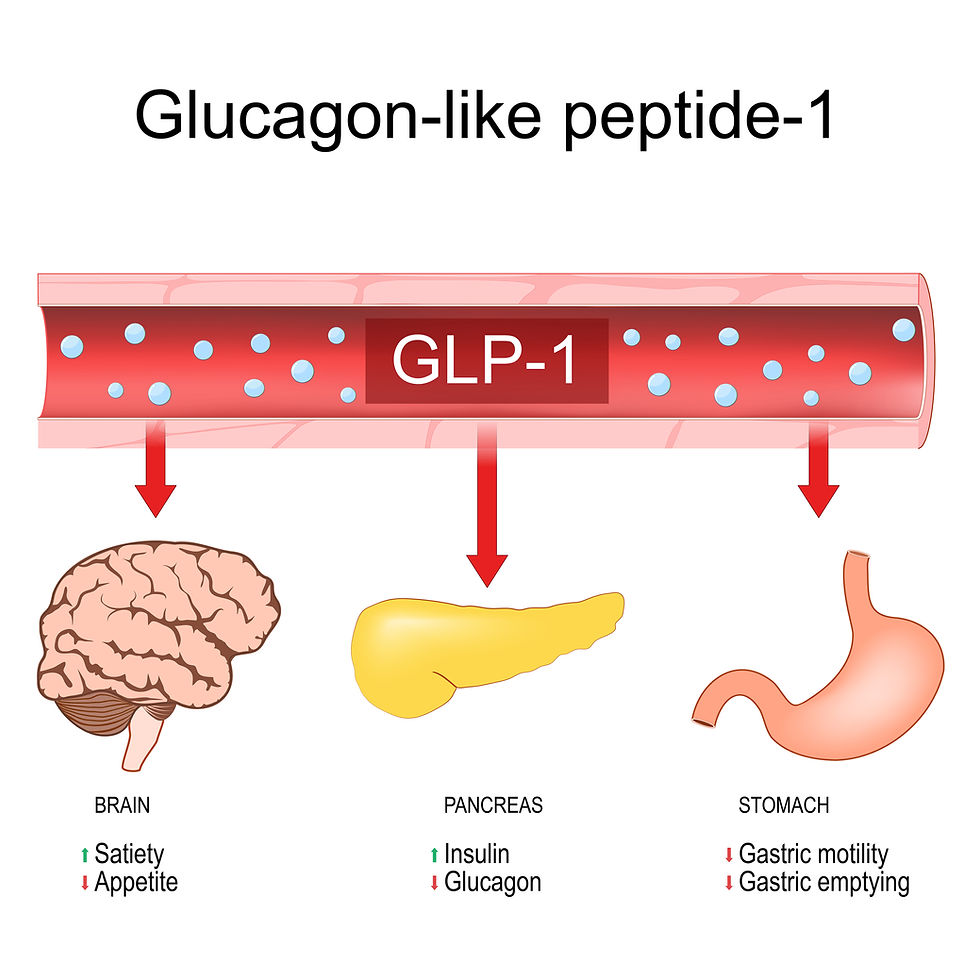Struggling to lose weight, feeling irritable, stressed, overwhelmed?
- Julie Hodgson
- Nov 3, 2020
- 4 min read
Updated: Apr 4, 2023
Maybe its your adrenals!.

Your adrenal glands are two small walnut sized glands that sit just above your kidneys. They are small but very powerful little glands extremely important for all round health, energy and vitality. Their job is to produce hormones, two of which being your stress hormones, adrenaline and cortisol.
The release of these stress hormones is controlled by the the HPA axis (Hypothalamic Pituitary axis), a neuroendocrine system, your brain to adrenal pathway, which controls your reaction to stress and many physiological processes including your digestion, hormones, your mood, immunity and energy regulation.
Increased or prolonged amounts of stress on the body can cause your HPA axis to become dysregulated, resulting in miscommunication between the Hypothalamus, Pituitary and Adrenals. The consequences of this results in either too much cortisol at certain times of the day, or not enough depending on the person, type of stressor and situation.
Too much or not enough cortisol production has lots of not so great affects on the body, a couple being increased inflammation, slower metabolism and increased fat storage. Especially around the tummy! It can also impact mental health, energy levels and how we cope with different levels of stress.
Some signs and symptoms of HPA dysregulation and struggling adrenals.
- Anxiety
- Poor sleep
- Irritability, low mood, depression,
- Feeling ‘tired but wired’
- Feeling exhausted in the morning and struggling to get going.
- Weight gain, especially around the tummy
- High blood pressure
- Poor memory and concentration
- Symptoms of low thyroid function
- Hormonal symptoms including heavy periods or changes in your menstrual cycle.
- Increased severity of PMS or menopausal symptoms
The kind of stress that leads to this doesn’t have to be an obvious “I’m so stressed” scenario, it tends to be more long term chronic stressors that we experience in daily life.
The drip feeding of small stressors we experience every day, traffic cues, the news, overwhelm, feeling there's a lack of time, as well as our thoughts, emotions and how we perceive things. Excessive exercise and under eating can also lead HPA axis dysregulation.
These stressors all trigger what is known as your bodies ‘stress response’.
The good news however, is that once you are aware of this, you can do something about it to help relieve symptoms and feel better. There is the option of testing to ascertain your degree of stress or dysregulation of hormones and cortisol production, and there are lots of things you can do to support healthy adrenal function.
Some of those things include;
1) Balancing blood sugar. A good place to start is balancing blood sugar through a low GI diet. Low blood sugar when you feel irritable or shaky triggers the adrenals to release stress hormones exacerbating the whole stress response, and as well as making you feel so much worse, just keeps the cycle going! So a great place to start is eating adequate protein at each meal, and reducing refined carbohydrates, foods that cause a spike and then a dip in blood sugar.
2) Replace vitamins and minerals depleted in this stress response and required by the adrenal glands to function properly. Vitamins and minerals like magnesium, B vitamins, Vitamin C, Omega 3 fatty acids.
3) Avoid stimulants such as sugar, coffee and alcohol. Although these might give you a quick pick me up, they also are particularly detrimental to the adrenal glands and the will only make the situation worse.
4) Don’t under or over eat. These in themselves are both significant stressors on the body. Individuals with a poor stress response and struggling adrenals often feel a lot worse fasting. So, although fasting has some great benefits. This may not be for you.
5) That also goes for a very low carbohydrate diet. Again, those with struggling adrenals and low thyroid symptoms may feel a lot worse going too low on carbohydrates.
6) Making sure you do appropriate exercise. Those with a heightened stress response and struggling adrenals may struggle with particularly intensive exercise and only make symptoms worse. The term 'train not drain' is a great saying, and worth considering if you feel particularly drained after your exercise session. Your body may need a different type to restore and rebalance hormones.
7) Putting in some stress management where you allow your hormones to reset, cortisol to drop if high, and your mind to calm. Activities like meditation, deep breathing, yoga, a gentle walk in nature are all shown to help bring the body back into balance, and regulate hormones again. Regular practice and consistency would help you generally feel better over the course of your day.
8) Psychological support or therapy if needed to help you find peace and manage negative emotions that may be triggering your stress response. This may be past trauma or negative life experiences, bad relationships, anxiety or depression, or learnt behaviours keeping you stuck.
The above are steps you can start putting in place to help you build up a resilience to the inevitable stressors life brings to improve both your physical and mental health.
I hope this make a difference for you, and if you want any help, or have any questions please get in touch below.
I would love to hear from you! 😊
I help individuals improve their health through Natural Health, Nutrition and Lifestyle Coaching and have several packages and options to help clients go from feeling unhealthy & fed up to vibrant, happy and energetic! 💫
Julie x
Helping you live a healthier, happier life Julie Hodgson BSc (Hons), PgDip, DIP ION, mBANT CNHC Registered Nutritionist & Health Coach 1-2-1 Health & Well being Consultations and Packages E. juliehodgsonnutrition@gmail.com www.juliehodgsonnutrition.co.uk www.facebook.com/juliehodgsonnutrition T. 07971 862324





Comments